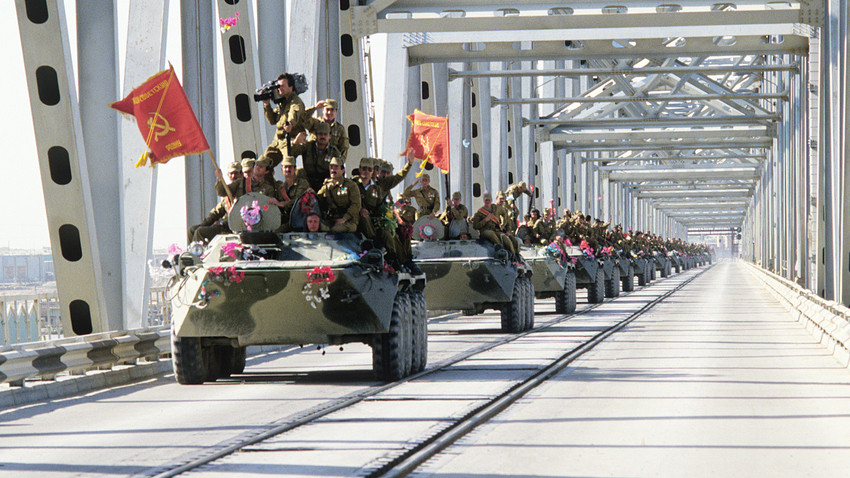
Soviet troops coming back from Afghanistan, 1989. Not everyone in the Russian military was happy enough to come back alive.
Sputnik/SputnikNo one knows how exactly Hafizulla Amin, the Afghan leader, died. Some claim he shot himself, others say an Afghan officer killed him. One thing is known for sure: it happened the night Soviet Special Forces stormed his well-guarded residential stronghold, the Tajbeg Palace, on Dec. 27, 1979.
It was the first major sign of Soviet involvement in Afghanistan's internecine war. Between Dec. 25 and 27, Soviet battalions moved into the country taking control of the capital, Kabul and beginning what would turn into 10 years of military operations. What’s usually forgotten is the fact that it wasn’t an invasion. Amin basically begged Brezhnev 19 times to send in the troops. The reasons are complex.
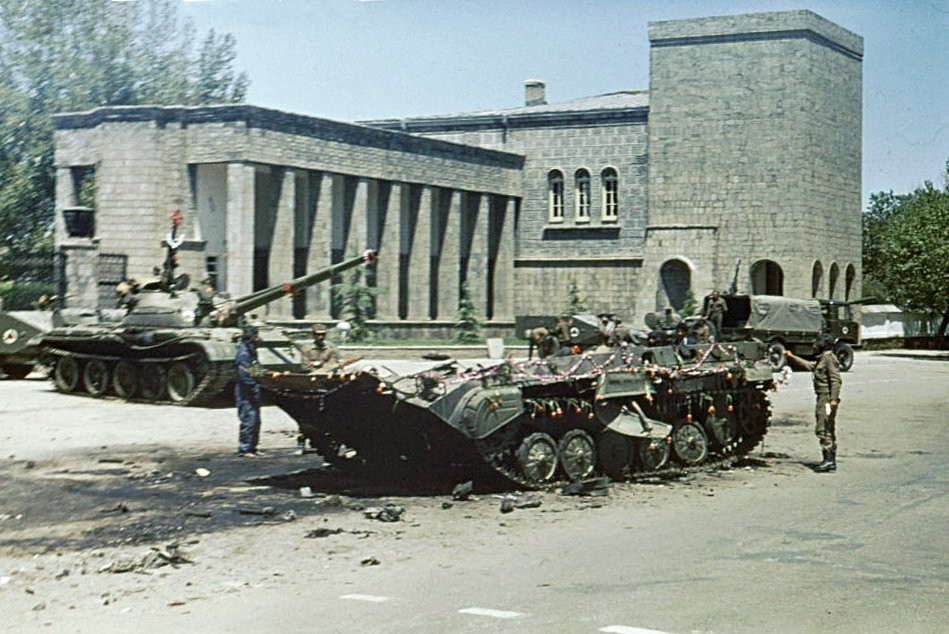
Day after the Saur Revolution, when a pro-Soviet party seized power in Afghanistan.
Cleric77/WikipediaParadoxically, when the pro-Soviet People's Democratic Party of Afghanistan (PDPA) seized power through a coup (the Saur revolution of April 1978), Moscow party bosses were not happy. “Previously, Soviet policy was aimed at keeping Afghanistan neutral,” historian Nikita Mendkovich, explains.
The Cold War was at its height and neutral Afghanistan seemed to offer a good buffer between the Central Asian republics of the USSR and adversary states: Pakistan, Iran
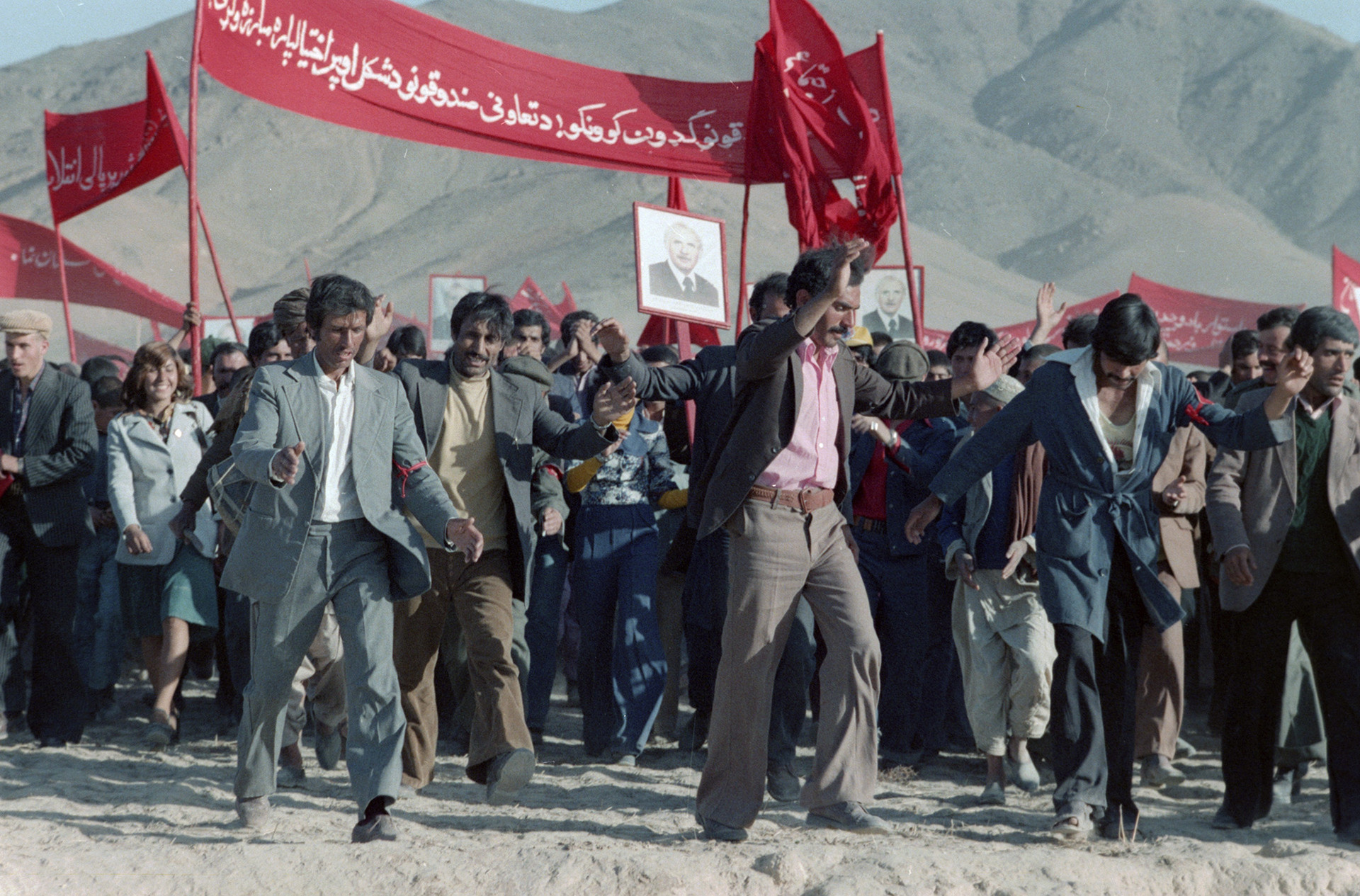
Afghani socialists celebrating victory, 1979.
Valentin Sobolev/TASSNur Muhammad Taraki, the first PDRA head of state, failed to find a common language with his people. A hard-line leftist, Taraki started social and economic reforms by dividing
“Come visit us in a year and you’ll find our mosques empty,” Taraki boasted to KGB official Vladimir Kryuchkov in July 1978. He bragged that Afghanistan, a poor rural country, would within a couple of years, match hard-earned Soviet achievements in free education and medicine, universal literacy and heavy industry. Events proved otherwise: the next year the mosques were still full, the country shattered by civil war and Taraki was dead
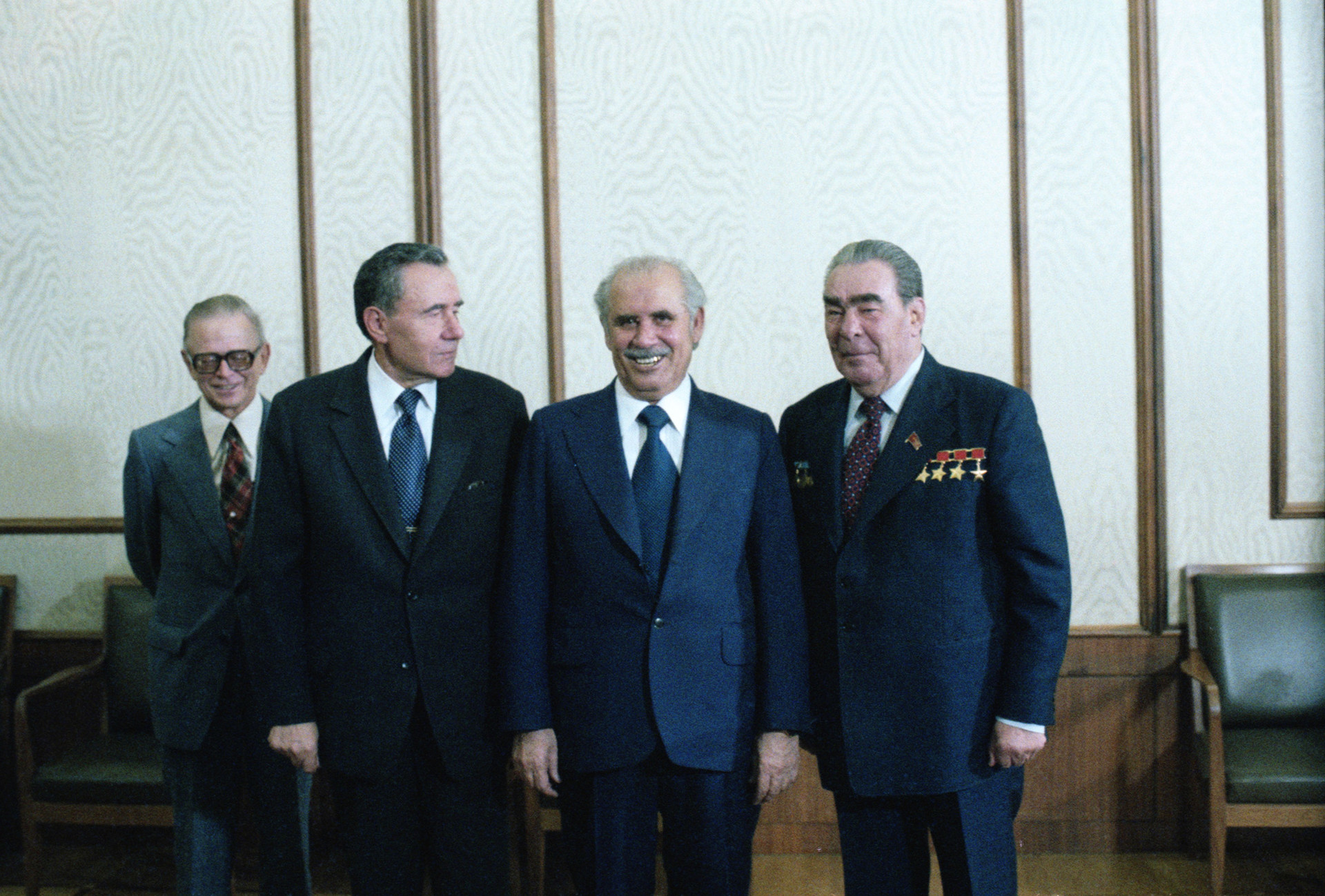
Leonid Brezhnev and General Secretary of The People's Democratic Party of Afghanistan Nur Muhammad Taraki.
Vladimir Musaelyan, Alexey Stuzhin/TASS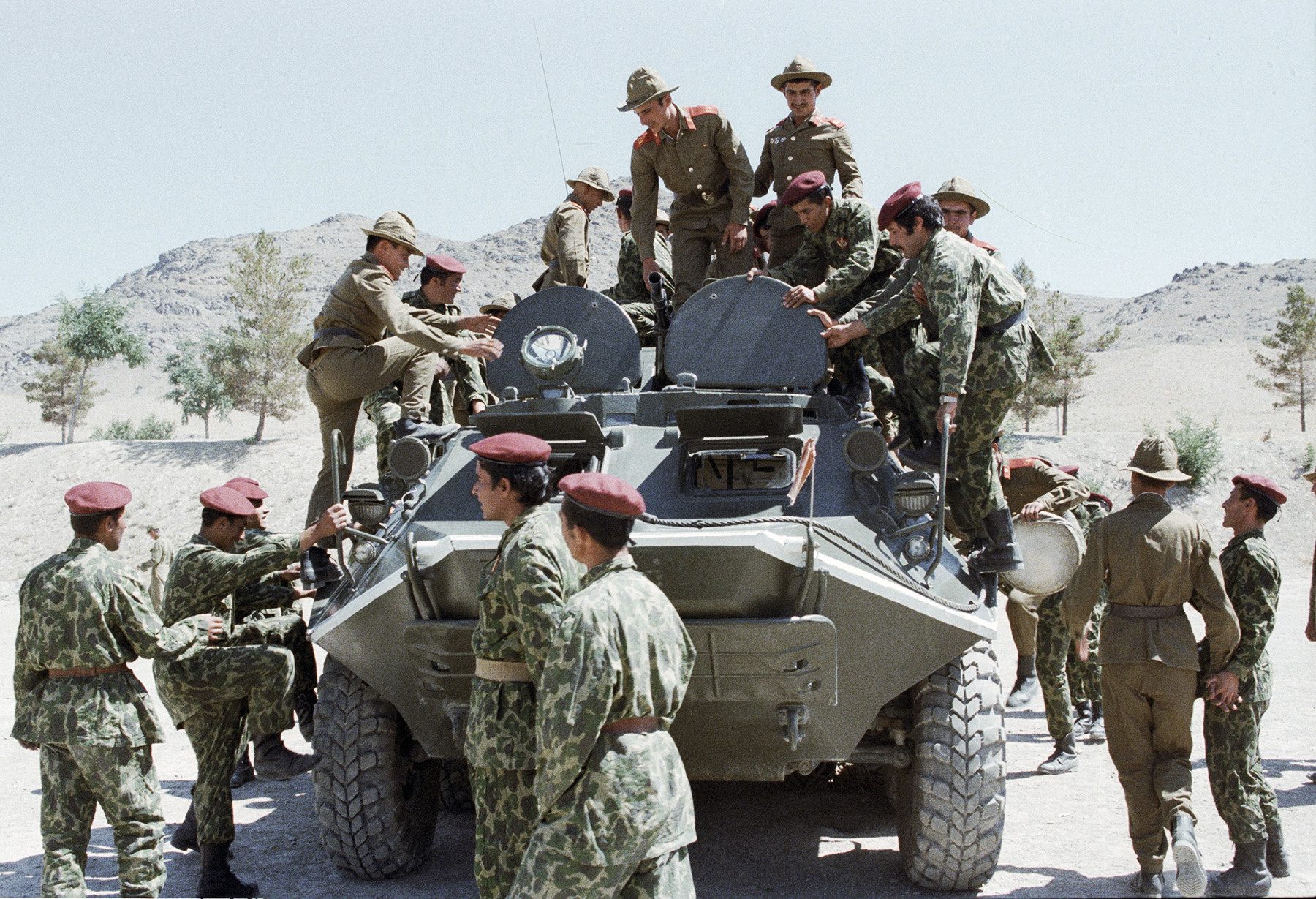
Soviet soldiers are showing their military equipment to Afghan paratroopers.
Valeriy Shustov/SputnikAndropov's position was unanimously supported, even though Taraki and Amin insisted that without Soviet support the country would be lost to the Islamists, whose ideology found favor with many Afghanis; and whose rebel forces enjoyed foreign financial support from the U.S., China, Iran and Pakistan (which also supplied fighters). Moscow resolved to support the Afghan government with military supplies - weapons and instructors - but not troops, and did so between March and December 1979.
What made the Politburo change its mind? Geopolitics: Brezhnev and his colleagues were afraid of losing Afghanistan. By late 1979, an anti-government coalition held 18 of 26 Afghan provinces, central government's armed forces were teetering on the brink of disintegration and there were fears the country could soon fall under Islamist control. Afghanistan was simply too important to fail
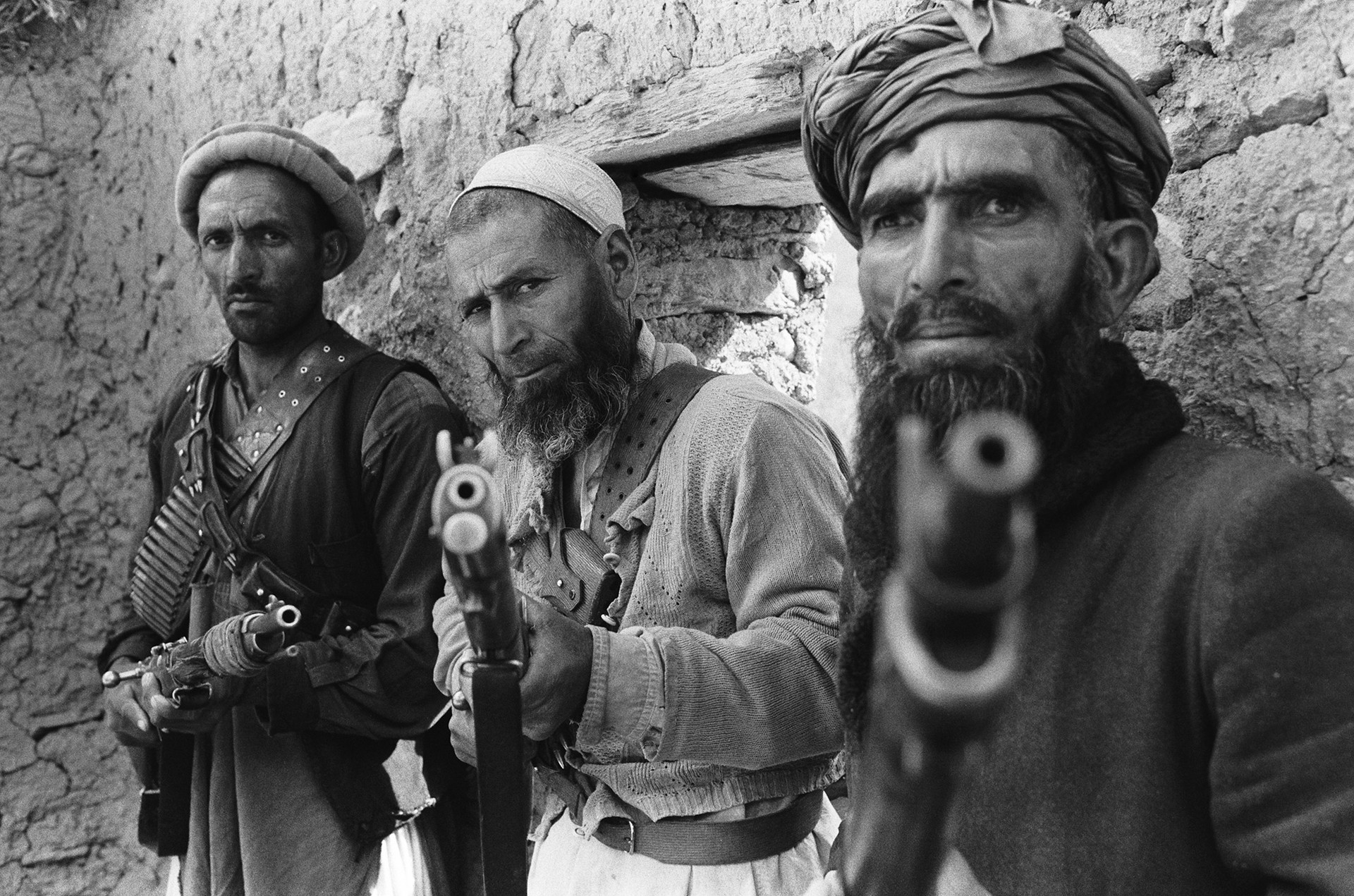
The Mujahedeen - Islamist fighters who opposed the USSR and pro-Soviet government in 1979-1989.
Getty ImagesIf Afghanistan's pro-Soviet government lost the fight against the Islamists, there would have been a risk or Chinese or American military bases appearing in the country, posing a threat to multiple strategic sites. Unprepared to confront such risks, the Politburo reasoned that military action was the lesser of two evils. The top Soviet body also decided to get rid of Amin, suspecting that under pressure he could side with the Americans.
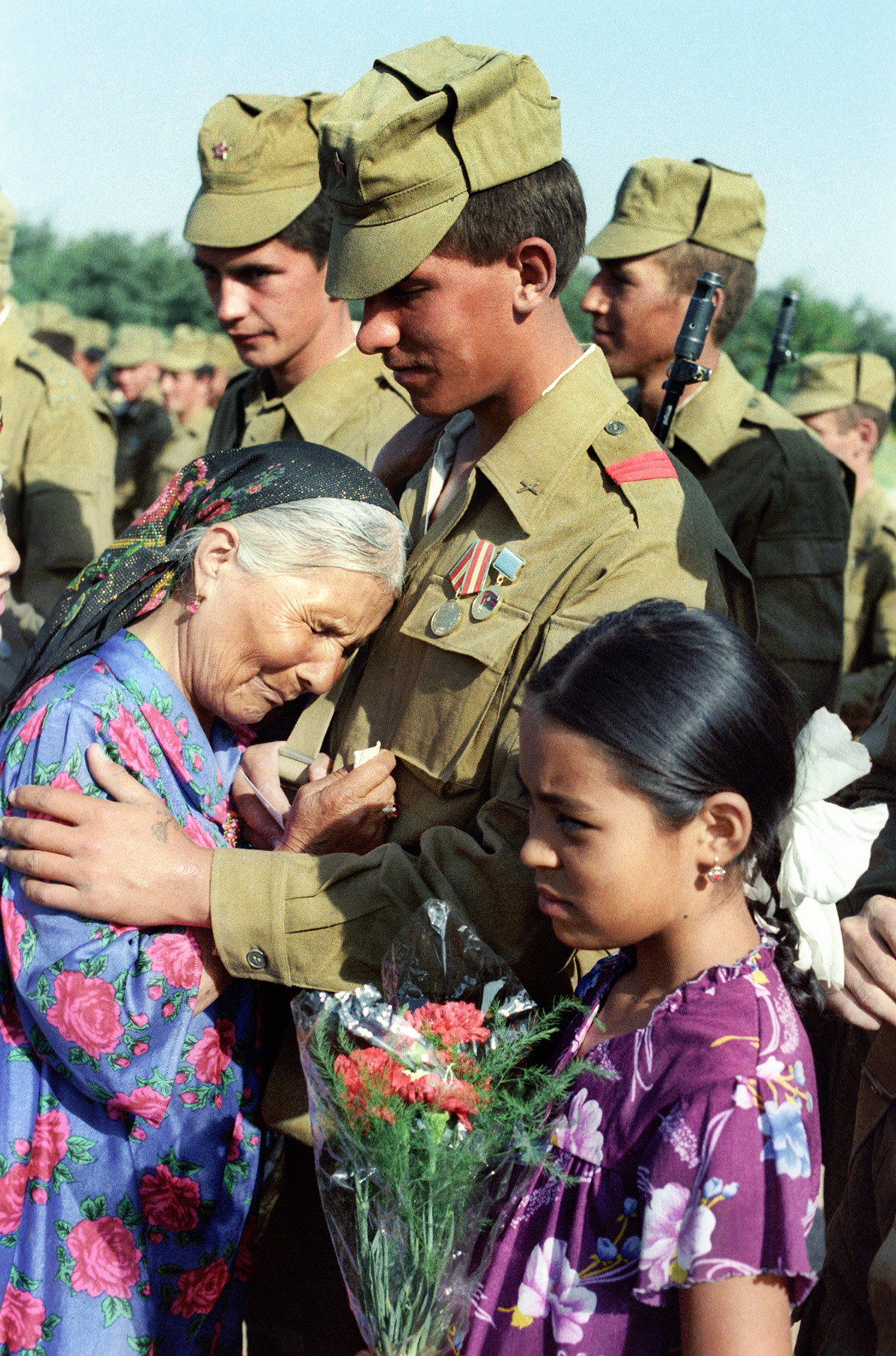
Uzbek SSR. USSR. An old woman cries as she greets Soviet soldiers returning home from Afghanistan.
I. Khodzhayev and F. Kurbanbayev/TASSThe Soviet presence in Afghanistan lasted until Feb. 1989, and, according to official sources, cost 15,000 Soviet lives (and at least 640,000 Afghans), and failed to accomplish its goals: the pro-Soviet government fell within months of the Soviet withdrawal. The incursion was an international PR disaster that damaged the delicate Cold War balance of détente between the USSR and the U.S., only serving to exacerbate relations between the superpowers.
Soviet involvement in Afghanistan hastened the collapse of the USSR. “The Afghan war deteriorated the USSR’s economic stance and torpedoed Soviet societal unity. The growing number of victims prompted discontent within the country,” writes political scientist Alexey Bogaturov in his book History of International Relations, 1945-2008
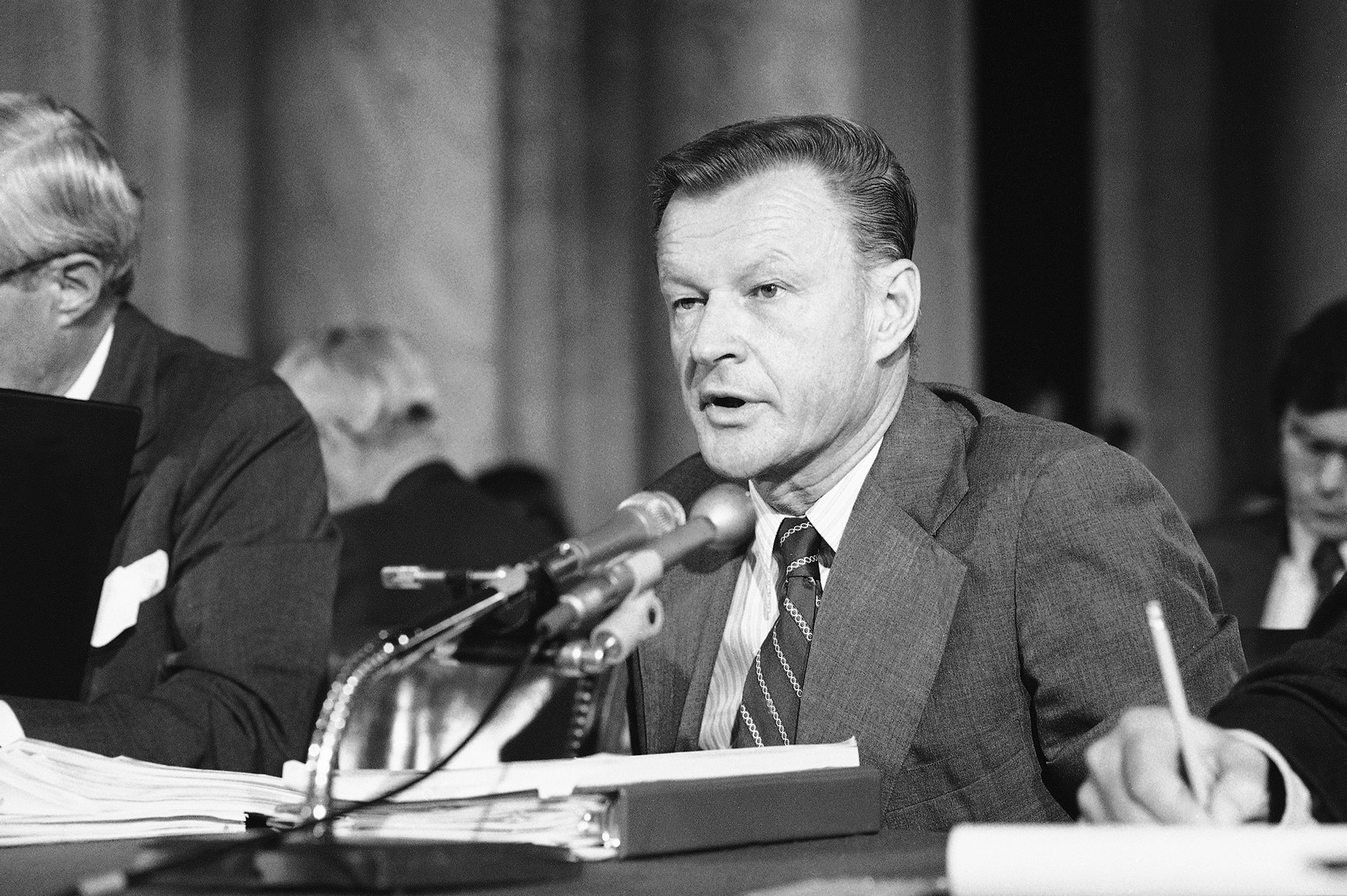
Zbigniew Brzezinski (pictured here in 1980) was among those who provoked the Soviet deployment in Afghanistan. Until the 2000s, it seemed a major win for Washington.
AP“The day that the Soviets officially crossed the border, I wrote President Carter: 'We now have the opportunity of giving the USSR its Vietnam war.' Indeed, for almost 10 years, Moscow had to carry on an unsustainable war, a conflict that brought about the demoralization and finally the breakup of the Soviet empire,” Brzezinski said.
He had his reasons to be proud – the interview took place in 1998 and for another three
If using any of Russia Beyond's content, partly or in full, always provide an active hyperlink to the original material.
Subscribe
to our newsletter!
Get the week's best stories straight to your inbox